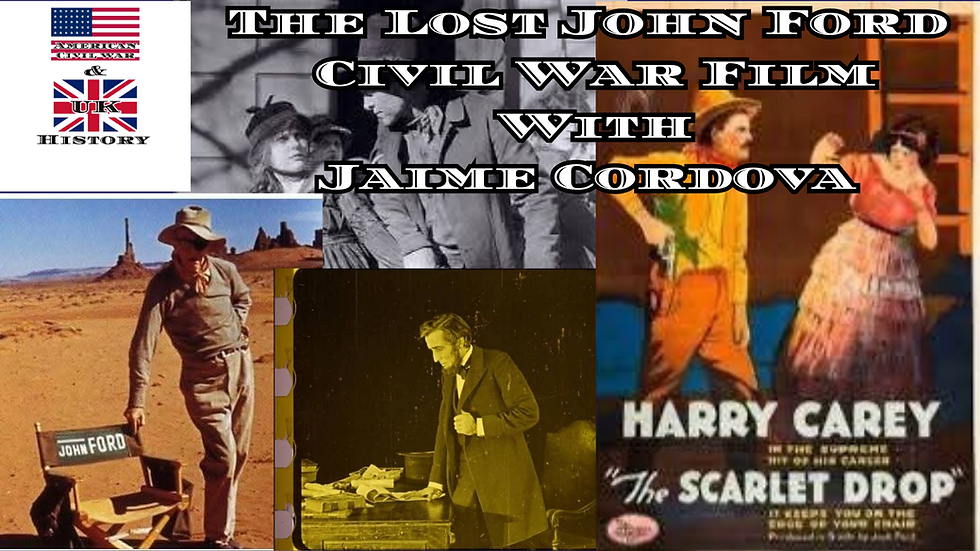“Shot and shell baptism at Shiloh” by Gina Denham.
- darrenscivilwarpag8
- Nov 2, 2023
- 3 min read

As you will probably know by now, the #themonumentalproject team will leave no stone unturned in our relentless search to identify veterans. We keep an extra vigilant eye open for clues concerning the London Branch of American Civil War veterans. Occasionally, our tenacity is rewarded. Today happened to be one of those days when we came across a photograph of the Branch’s thirteenth member – David Blair. Naturally, we wanted to find out more!! David was one of the original members, the 13th veteran, to join the member roll in 1910. He was tall compared to some of his peers, standing at 5’ 8” with brown hair and black eyes (according to his 1861 description). He was an Irishman by birth. Born on February 9th, 1837, at Galgorm Parks, Antrim, Ireland.
By April 1861, David had enlisted in the British army and was a gunner in the Royal Artillery based in Woolwich barracks, London. However, the roar of artillery was also starting to be heard on foreign shores. The opening shots of the Civil War clearly attracted David's attention because within the year he was in the United States.

David, which we believe is in his Royal Artillery Gunners uniform.
David served with the 11th Illinois Cavalry and rose through the ranks to 2nd Lieutenant by the time of his discharge. The 11th Regiment, Illinois Cavalry, was organised at Peoria, Illinois. Recruits commenced going into camp at Camp Lyon, Peoria, about November 1st , 1861. Twelve full companies were recruited and mustered into the United States service by Capt. C.B. Watson, of the Fourteenth U.S. Infantry, mustering officer, on December 20th , 1861, when they became a mounted unit .
On December 4th, 1861, he enlisted as a private company F of the 11th. However, his prior service may have made him stand out because he was later promoted to Sergeant. He ended his service after four years as an officer by the time of his discharge on September 30th 1865. He clearly saw action and had an impressive career in the 11thIllinois. His first baptism of fire under shot and shell was at the Battle of Shiloh.
“The regiment's first experience under fire was when the fighting commenced at the battle of Shiloh on April 6, and early on the morning of that day, it lost several men. In killed and wounded. The second day of the battle would also see severe loss in killed and wounded. It then operated in Tennessee and North Mississippi; was in the fight at Bolivar, Tenn.; met with a severe loss in a fight at Davis bridge on the Hatchie river; and was also in the 3 days' fight at Corinth and Iuka in October. During the winter of 1862-63, it was stationed at Jackson, Tenn., and met Forrest's advance at Lexington on Dec. 18, the loss in killed and wounded being heavy and about 100 men were taken prisoners”. (Civil War index)
Whilst David survived his service, 279 others did not. The Regiment lost during service 2 Officers and 32 Enlisted men killed and mortally wounded and 8 Officers and 237 Enlisted men by disease By February 1877 he was back in England where he married an Irish woman called Eliza Quinton in Liverpool. Eliza was nearly twenty years younger. By 1881, they had settled back in Woolwich. His military service had come to an end, and he was working as a labourer in a Sugar Factory. He remained in that employment up to, and including 1911, as did many of his children.
David died on March 2nd, 1924, at West Ham, but we have not as yet been able to determine his last resting place. So, finding out more will be a work in progress, plus we need to identify him as a 5’ 8” tall ageing veteran among his London Branch peers!! Our work is very much, 'To be continued' However in the here and now, it falls to us to say, “Thank you for your service David, we honor and remember you this day”.

Survivors of the 11th Illinois Cavalry at an 1895 reunion. Ingersoll, the regiments founder, is seated centre left. ( Morris Library)
Further reading –







Comments